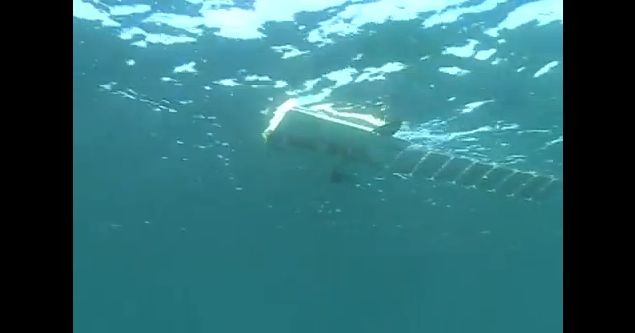Previously, we’ve seen swimming robots inspired by the cow-nosed ray, theblack ghost knife fish, and the jellyfish – to name just a few. Now, the engineers at AeroVironment have taken it upon themselves to replicate the mola (also known as the ocean sunfish), and the result is an ocean-going robot that gathers its own solar power.
The bizarre-looking sunfish is known for its habit of coming to the surface and rolling to one side to bask in the sun. While its reasons for doing so aren’t entirely understood, the Mola robot also rises to the surface to catch some rays – in its case, however, it’s doing so to charge its integrated solar panels.
According to a report in IEEE Spectrum, the Mola has no batteries, so energy gathered by those panels goes directly into powering the robot’s two fins in real time. An attachable flexible tail of linked solar panels can be used to increase the amount of power it can generate. That power is also used by an onboard data logger, that keeps a record of the local physical, chemical and biological water conditions.
A real-life mola, basking in the sun (Photo: Shutterstock)
The robot has a cruising speed of two knots, and is intended to swim beneath the surface when not charging. How it would do so without a battery isn’t immediately clear, although recent research has shown thatgallium indium phosphide solar cells placed up to 9.1 meters (29.9 feet) underwater are capable of generating some electricity – albeit, probably not enough to keep the Mola swimming.
The robot is currently just a proof-of-concept exercise. If ever developed, it would likely be used for autonomous open-water research and/or reconnaissance, like Liquid Robotics’ existing Wave Glider.











0 comments:
Post a Comment
Thanks for your lovely comments!♥